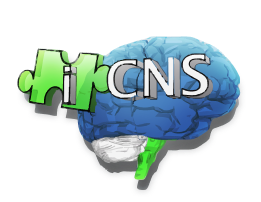By Dr. Allen Novian
ALZHEIMER’S ASSOCIATION LAUNCHES TRIALMATCHTM – FIRST-OF-ITS-KIND CLINICAL TRIAL MATCHING SERVICE IN ALZHEIMER’S
Alzheimer’s Association TrialMatchTM Connects People with Alzheimer’s with Potentially Life-Altering Clinical Studies
July 12, 2010, San Antonio, Texas – The Alzheimer’s Association announced today the launch of Alzheimer’s Association TrialMatchTM, a confidential and free tool that provides comprehensive clinical trial information and an individualized trial matching service for people with Alzheimer’s disease and related dementias.
The Internet (www.alz.org/TrialMatch) and phone-based (800-272-3900) service debuted during the Alzheimer’s Association’s 2010 International Conference on Alzheimer’s Disease (ICAD) in Honolulu, HI.
There are as many as 5.3 million Americans living with the disease and every 70 seconds someone in America develops Alzheimer’s disease, according to the Alzheimer’s Association’s 2010 Alzheimer’s Disease Facts and Figures.
“Alzheimer’s disease is reaching epidemic proportions with devastating impact on families, and the potential to wreck Medicare, Medicaid and the health care system,” said William Thies, PhD, Chief Medical and Scientific Officer at the Alzheimer’s Association. “The immediate need for advances in diagnosis, treatment and prevention has led to an unprecedented need for clinical study participants. This, combined with challenges specific to recruitment and retention of participants with Alzheimer’s, has created a particularly difficult situation for the field. That’s why the Alzheimer’s Association has launched Alzheimer’s Association TrialMatch.”
Recruiting and retaining participants for clinical studies is one of the greatest obstacles to developing the next generation of Alzheimer’s treatments.1
“We’re looking to physicians to play a leadership role in referring their patients to clinical trials in Alzheimer’s and dementia,” said Marilyn Albert, PhD, Professor of Neurology at Johns Hopkins and Director of their Division of Cognitive Neuroscience. “As healthcare professionals, there is more we can do to help our patients post-diagnosis. By referring our current patients to trials, we offer access to potential cutting-edge treatments while unlocking the door to potentially more widely-available treatments for people with Alzheimer’s in the future.”
There are no treatments available to slow or stop the brain cell deterioration that occurs with Alzheimer’s. However, more than 100 clinical studies in Alzheimer’s and dementia are currently taking place and dozens more experimental compounds are moving from the laboratory to clinical testing.
“Families affected by Alzheimer’s need better diagnostic and treatment options now, and the lack of participants in clinical studies is a significant public health issue,” Dr. Thies said. “Alzheimer’s Association TrialMatch is a powerful and user-friendly tool for people with Alzheimer’s, their healthcare professionals, caregivers, and healthy volunteers to learn about and take part in cutting-edge research going on right now. By volunteering for clinical studies, people with Alzheimer’s and their caregivers can play a more active role in their own treatment while also contributing to scientific discovery and benefiting future generations. It is public service in the best possible sense.”
Alzheimer’s Association TrialMatch is a “dementia friendlier” service than others in this space, with web and phone support, specially trained staff, and tools developed with input from people with Alzheimer’s.
The strength of this Web- and national 800 line-based service is that Alzheimer’s Association TrialMatch contains a comprehensive, constantly updated database of institutional review board-approved Alzheimer’s, mild cognitive impairment and other dementia trials taking place across the U.S. Specialists at the Alzheimer’s Association’s national Contact Center – available 24-hours a day – assist in the process of matching individuals to clinical trials for which they are eligible based on study inclusion/exclusion criteria, diagnosis, treatment history and location. The technology and platform for Alzheimer’s Association TrialMatch is provided by EmergingMed.
Alzheimer’s Association Contact Center specialists will not recommend any particular clinical trial, but will describe all studies for which the person is eligible. They will answer questions about the trial process and connect individuals with trial sites based on their unique profile. Patients and caregivers will be encouraged to share their trial matches with their healthcare professionals to help decide whether a clinical trial is appropriate.
Alzheimer’s Association TrialMatch can be accessed at www.alz.org/TrialMatch or by calling toll-free, (800) 272-3900.
The Alzheimer’s Association is the leading voluntary health organization in Alzheimer care, support and research. Our mission is to eliminate Alzheimer’s disease through the advancement of research; to provide and enhance care and support for all affected; and to reduce the risk of dementia through the promotion of brain health. Our vision is a world without Alzheimer’s. For more information, visit www.alz.org.
# # #
References 1. National Institute on Aging. National Institutes of Health. U.S. Department of Health and Human Services. Participating in Alzheimer’s Disease Clinical Trials and Studies. September 2009; 09-7484. Accessed on April 8, 2010: http://www.nia.nih.gov/Alzheimers/Publications/trials-studies.html.
